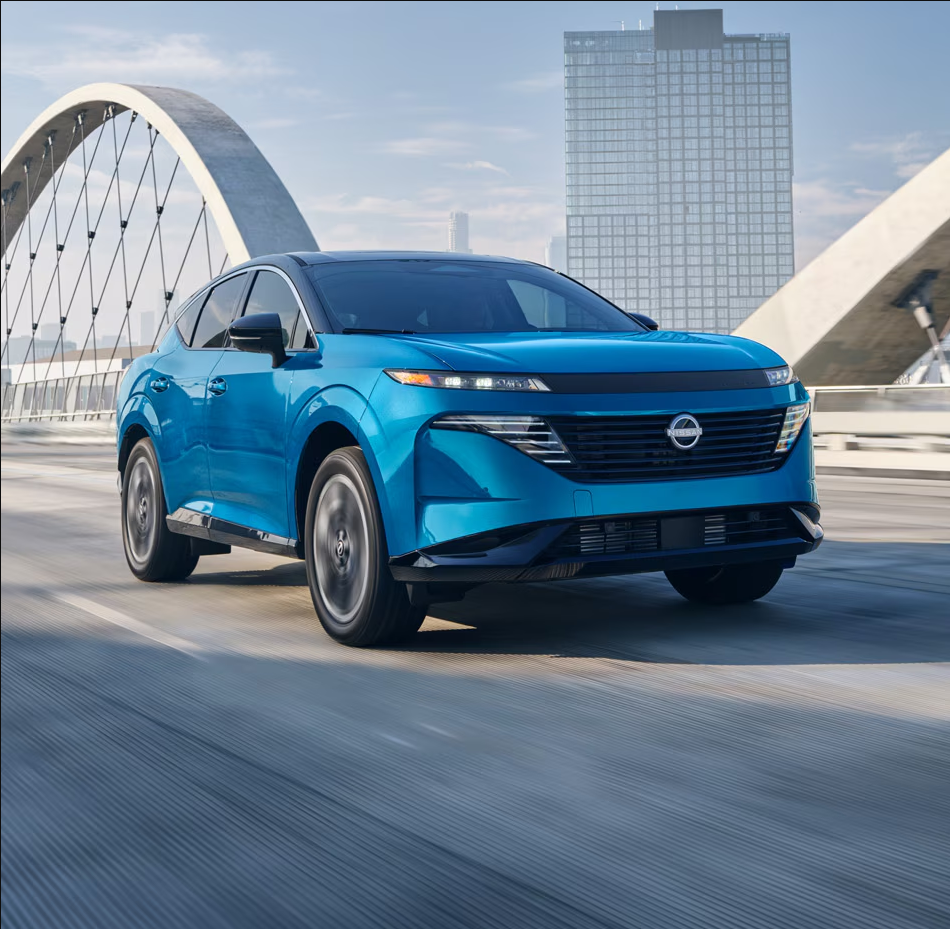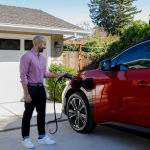Nissan has established a strong presence in the electric vehicle (EV) market with popular models like the Nissan Leaf and the upcoming Nissan Ariya. As more drivers switch to electric vehicles, understanding how to efficiently and conveniently charge your Nissan EV is crucial. This guide covers everything about Nissan EV chargers, from home charging solutions to public charging networks, helping you maximize the benefits of electric driving.

Understanding EV Charging Levels
Before selecting a charger, it’s essential to understand the different levels of EV charging and their characteristics:
-
Level 1 Charging: Uses a standard 120V household outlet, offering the slowest charging speed, ideal for overnight charging. Fully charging a Nissan Leaf may take up to 2.5 days, suitable for short commutes or as a backup option.
-
Level 2 Charging: Requires a 240V outlet, significantly increasing charging speed, typically fully charging in 7.5 to 11 hours, depending on battery capacity. This is the ideal choice for home charging.
-
DC Fast Charging: Also known as Level 3 charging, it’s the fastest method, charging a battery to 80% in about 30 minutes. Nissan EVs use the CHAdeMO connector for fast charging, perfect for long-distance travel.
Charging Your Nissan EV at Home
For most EV owners, home charging is the primary method. Here are the two main home charging options and steps to follow:
Level 1 Charging
Every Nissan EV comes with a Level 1 charger that plugs into a standard 120V outlet. While slow (adding about 2-5 miles of range per hour), it requires no additional installation, making it suitable for occasional use or emergencies.
Level 2 Charging
For faster charging, installing a Level 2 charger is recommended. This requires a 240V outlet and professional installation, often provided by Nissan’s partners like Wallbox. A Level 2 charger can fully charge a 40 kWh battery in 7.5 hours or a 60 kWh battery in 11 hours.
Home Charging Steps
-
Ensure the vehicle is parked and powered off.
-
Open the charging port cover and cap.
-
Plug the charger into the port; the vehicle will beep to confirm the connection.
-
Optionally, set a charging timer to take advantage of off-peak electricity rates.
-
Charging stops automatically when the battery is full, or you can unplug the charger to end charging early.
Recommended Nissan EV Home Chargers
Choosing the right home charger can significantly enhance your charging experience. Here are five top Level 2 chargers compatible with Nissan EVs, all using the SAE J1772 connector:
|
Rank |
Charger Name |
Charging Time |
Enclosure Rating |
Indoor/Outdoor |
Connector |
|
|---|---|---|---|---|---|---|
| 1 |
3-4 hours |
NEMA 1 (Indoor) |
Indoor |
SAE J1772 |
|
|
| 2 |
Grizzl-E Charging Station |
4-6 hours |
NEMA 3R & 4X |
Indoor/Outdoor |
SAE J1772 |
|
| 3 |
Siemens VersiCharge-GS |
4-6 hours |
NEMA 3R (Indoor) |
Indoor |
SAE J1772 |
|
| 4 |
Bosch Power Max Home Charging Station |
4-6 hours |
NEMA 1 (Indoor) |
Indoor |
SAE J1772 |
|
| 5 |
Leviton Evr-Green 240 Indoor |
4-6 hours |
NEMA 3R (Indoor) |
Indoor |
SAE J1772 |
|
These chargers are reliable and designed to work seamlessly with Nissan EVs. The EV-ONE Level 2 Home AC EV Charger leads with its fast charging and ease of use, while the Grizzl-E is favored for its indoor/outdoor versatility.
Public Charging Options for Nissan EVs
For long-distance driving or urban travel, public charging stations are essential. Nissan offers several public charging solutions to ensure a simple and efficient charging experience:
-
NISSAN ENERGY Charge Network: This network provides seamless service for Nissan Ariya and future EV owners. Through the MyNISSAN app, users can locate over 90,000 public charging stations across the U.S., check real-time availability, and pay directly.
-
EVgo Network: New Nissan Leaf buyers receive $100 in charging credits, while Ariya buyers enjoy unlimited charging for one year (for vehicles purchased before April 30, 2023, see EVgo Nissan Perks for details).
-
Other Networks: Nissan EVs are compatible with most public charging stations using J1772 (AC charging) or CHAdeMO (DC fast charging) connectors, accessible via the MyNISSAN or NissanConnect EV apps.
When using apps to locate charging stations, users can filter by distance, charger type, and payment options to quickly find the most suitable charging point.
Special Features and Apps
Nissan enhances the EV ownership experience with smart apps that offer advanced charging and vehicle management features:
-
MyNISSAN App (for Ariya and other models): Supports remote charging start, scheduling, and station locating. Download it from the Apple App Store or Google Play.
-
NissanConnect EV (for Leaf): Offers similar features, including remote charging control, plug-in reminders, and battery status checks. Users can access charging station information via the vehicle’s touchscreen or smartphone.
These apps provide real-time notifications and remote control, ensuring your vehicle is always ready to go.
Charging Costs and Savings
One of the major benefits of owning an EV is the significant reduction in fuel and maintenance costs. Here are some key points:
-
Home Charging Costs: Fully charging a 40 kWh Nissan Leaf battery with a Level 2 charger costs approximately $4 to $6 (depending on electricity rates), providing about 149 miles of range. In contrast, fueling a gas vehicle typically costs several times more.
-
Off-Peak Rates: Many utility companies offer lower electricity rates during off-peak hours. Scheduling charging at night can further reduce costs.
-
Government Incentives: Federal and state governments may offer tax credits or rebates for purchasing and installing home chargers. Check with your local utility or government websites for details.
-
Maintenance Savings: EVs require no oil changes or traditional engine maintenance, saving significant costs over time.
Environmental Benefits
Choosing a Nissan EV not only saves money but also reduces your carbon footprint. EVs produce zero tailpipe emissions, and charging with renewable energy sources (e.g., solar or wind) further minimizes environmental impact. Nissan’s commitment to sustainability aligns with the eco-conscious goals of EV owners.
Conclusion
Whether it’s a convenient home charger or access to an extensive public charging network, Nissan provides robust tools and support to make charging simple and efficient. With the information in this guide, you can confidently choose the charging solution that best fits your needs and embrace the convenience and eco-friendly advantages of driving an electric vehicle.


